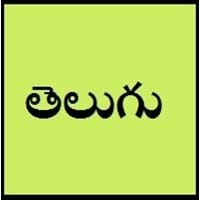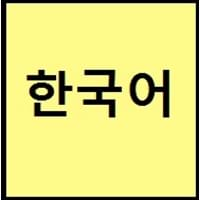Countries
Andra Pradesh, India, Telangana, Yanam
China, Jilin Province, North Korea, South Korea, Yanbian
National Language
Andra Pradesh, India
North Korea, South Korea
Second Language
Karnataka
Not spoken in any of the countries
Speaking Continents
Asia
Asia
Minority Language
Andaman and Nicobar Islands, Chhattisgarh, Karnataka, Maharashtra, Odisha, Puducherry, Tamil Nadu
Japan, People's Republic of China, Russia, United States of America
Regulated By
Telugu Academy and Official Language Commission of Government of Andhra Pradesh
The National Institute of the Korean Language
Interesting Facts
- Telugu is the only language in the Eastern world that has every single word that ends with a vowel sound. Telugu language is called "Italian of the East".
- Telugu is one of the oldest language in India which is 2,400 years old.
- Korean has borrowed words from English and Chinese.
- Korean has two counting systems. First, is based on Chinese characters and numbers are similar to Chinese numbers, and second counting system is from words unique to Korea.
Similar To
Tamil
Chinese and Japanese languages
Derived From
Sanskrit Language
Not Available
Alphabets in
Telugu-Alphabets.jpg#200
Korean-Alphabets.jpg#200
Scripts
Telugu Script
Hangul
Writing Direction
Left-To-Right, Horizontal
Left-To-Right, Horizontal, Top-To-Bottom
Hello
హలో (Halō)
안녕하세요. (annyeonghaseyo.)
Thank You
ధన్యవాదాలు (Dhan'yavādālu)
감사합니다 (gamsahabnida)
How Are You?
నువ్వు ఎలా ఉన్నావు? (Nuvvu elā unnāvu?)
어떻게 지내세요? (eotteohge jinaeseyo?)
Good Night
శుభ రాత్రి (Śubha rātri)
안녕히 주무세요 (annyeonghi jumuseyo)
Good Evening
శుభ సాయంత్రం (Śubha sāyantraṁ)
안녕하세요 (annyeonghaseyo.)
Good Afternoon
శుభ మద్యాహ్నం (Śubha madyāhnaṁ)
안녕하십니까 (annyeong hashimnikka)
Good Morning
శుభోదయం (Śubhōdayaṁ)
안녕히 주무셨어요 (An-yŏng-hi ju-mu-shŏ-ssŏ-yo)
Please
దయచేసి (Dayacēsi)
하십시오 (hasibsio)
Sorry
క్షమించాలి (Kṣamin̄cāli)
죄송합니다 (joesonghabnida)
Bye
బై (Bai)
안녕 (annyeong)
I Love You
నేను నిన్ను ప్రేమిస్తున్నాను (Nēnu ninnu prēmistunnānu)
당신을 사랑합니다 (dangsin-eul salanghabnida)
Excuse Me
క్షమించండి (Kṣamin̄caṇḍi)
실례합니다 (sillyehabnida)
Where They Speak
Andra Pradesh, Karnataka, Maharashtra
South Korea
Dialect 2
Chenchu
Gyeongsang
Where They Speak
Andra Pradesh, Karnataka, Orissa
South Korea
Dialect 3
Manna-Dora
Hamgyŏng
Where They Speak
Andra Pradesh, Tamil Nadu
China, North Korea
How Many People Speak
Not Available
Second Language Speakers
Not Available
Native Name
తెలుగు (telugu)
한국어 (조선말)
Alternative Names
Andhra, Gentoo, Tailangi, Telangire, Telegu, Telgi, Tengu, Terangi, Tolangan
Hanguk Mal, Hanguk Uh
French Name
télougou
coréen
German Name
Telugu-Sprache
Koreanisch
Pronunciation
Not Available
Not Available
Ethnicity
Telugu people
Koreans
Origin
c. 575
Before 1st century
Language Family
Dravidian Family
Koreanic Family
Subgroup
Not Available
Not Available
Branch
Not Available
Not Available
Early Forms
Early Telugu epigraphy
Old Korean, Middle Korean and Korean
Standard Forms
Telugu
Pluricentric Standard Korean, South Korean standard and North Korean standard
Signed Forms
Not Available
Korean Sign Language
Scope
Individual
Individual
ISO 639 6
Not Available
Not Available
Glottocode
telu1262
kore1280
Linguasphere
No data available
45-AAA
Language Type
Living
Living
Language Linguistic Typology
Subject-Object-Verb
Subject-Object-Verb
Language Morphological Typology
Not Available
Agglutinative
Telugu and Korean Speaking population
Telugu and Korean speaking population is one of the factors based on which Telugu and Korean languages can be compared. The total count of Telugu and Korean Speaking population in percentage is also given. The percentage of people speaking Telugu language is 1.15 % whereas the percentage of people speaking Korean language is 1.14 %. When we compare the speaking population of any two languages we get to know which of two languages is more popular. Find more details about how many people speak Telugu and Korean on Telugu vs Korean where you will get native speakers, speaking population in percentage and native names.
Telugu and Korean Language Codes
Telugu and Korean language codes are used in those applications where using language names are tedious. Telugu and Korean Language Codes include all the international language codes, glottocodes and linguasphere.





